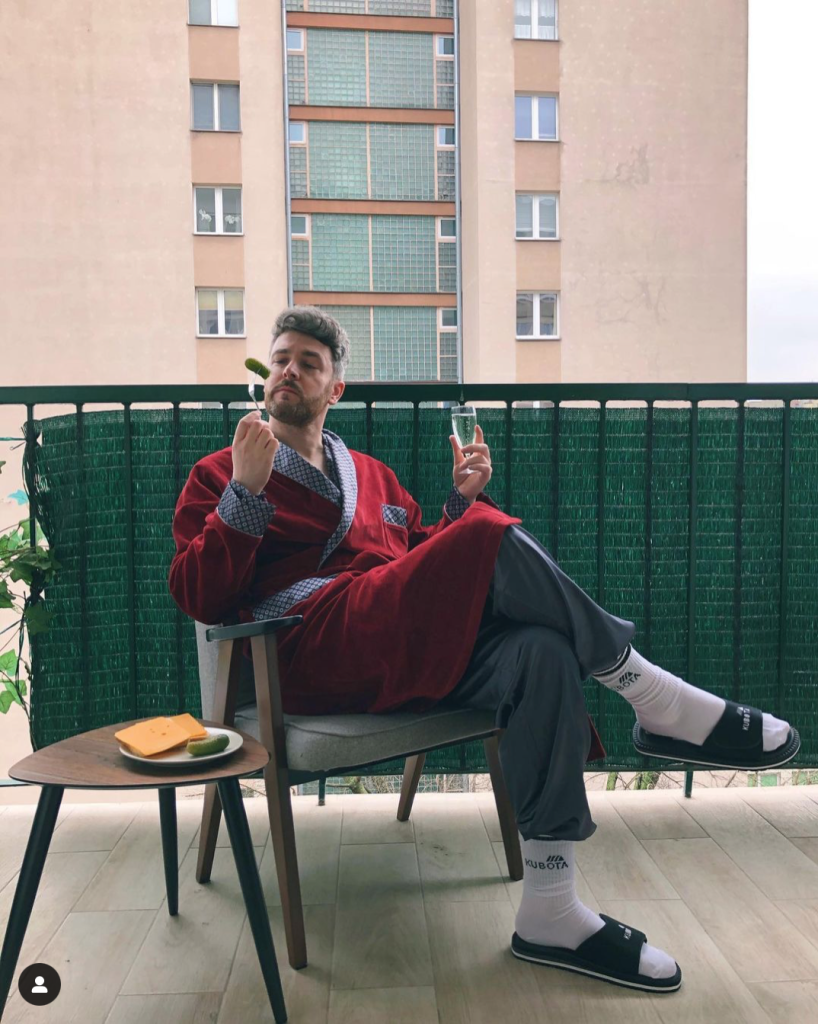It is extremely interesting to see how communication evolves in the digital realm. One of the most fascinating examples for me is an Instagram profile, known to many Polish users of this platform, Make Life Harder. The day with Make Life Harder starts at 9 am, just as the corporate workers arrive at the offices, with a stunning video of a landscape, or cute dogs, to ease everyone into the harsh Polish reality. Until 5 pm the followers get a mix of news and memes about politics and social life. If you are bored at work or find something particularly funny or absurd, you can send a message to the page, they might publish it as well. The popularity of the account, currently with 1.2 million followers, shows the trust of the community. How did a meme page gain such recognition?

What is Make Life Harder?
Make Life Harder (MLH) was established in 2011. Its creators, Jakobe Mansztajn and Rafał Żabiński hid their identities until 2015, writing under the pseudonyms of Maciej and Lucjan. The blog became famous, because of its ironic and sharp commentary on celebrity culture in the age of digital media. The name itself is a parody of a different blog titled Make Life Easier, created by Kasia Tusk, a lifestyle influencer and the daughter of the former Prime Minister. Mansztajn commented, that MLH was the working-class counterpart to her upper-class content.
She was a bruschetta with capers and blue cheese, while we were a sandwich with cheese and ketchup.
Jakobe Mansztajn in an interview with Onet (June 20. 2021).1
In their texts, they poked fun at the absurdities of the Internet culture and the behaviors of celebrities and politicians within the Polish social landscape. MLH’s ironic and witty style was appreciated by the middle-class Millenials, not identifying with the lifestyle promoted by bloggers such as Kasia Tusk, but rather facing the much less colorful Polish reality. They started as bloggers, and with the rise of Facebook, and later Instagram, became influencers. Together they wrote two books. Currently, the profiles are managed only by Mansztajn, as Żabiński emigrated to the United States.

Change of the Format
The popularity of the Instagram profile increased rapidly in 2020, with the outbreak of the COVID-19 pandemic. In the early days of quarantine, many people turned to MLH’s Instagram stories, where they would find the latest news on the spread of the virus. The app’s stories function allowed Mansztajn to react to the situation in real-time, sharing both governmental announcements and commentary. MLH’s Instagram stories became an alternative to traditional news outlets. One could still get updates on the latest governmental restrictions and additionally enjoy thematically related memes. The content of the page mostly consisted of things sent by the followers, with a few created by Mansztajn. He became more of a selector, rather than a creator. The content was therefore a collective effort, which made it even more relatable to the users. The profile made it easier for the followers to cope with the fear and uncertainty of the quarantine.
The News
For everyone not familiar with the relationship between the currently ruling party, the Law and Justice (PiS), and the media here is a quick recap. The public channels, namely the Polish Television (TVP) are controlled by the government. The information reported in their news outlets is far from neutral, mostly praising the decisions made by the ruling party and criticizing every move of the opposition. The goal of the PiS was to monopolize information. In 2021, PiS proposed a media bill, that would prevent actors from outside the European Union from owning the majority of a Polish media outlet. This law was crafted against the biggest private television channel in Poland, the TVN, owned by an American company Discovery. The resistance of the journalists of the TVN influenced the neutrality of the reported news. While they offer information independent from the PiS’ populist narration, it became radically anti-government, favoring the biggest opposition party, the Civic Platform.
Actually Making Life Harder?
It is not surprising, that the community-based communication offered by MLH was for many a solid alternative to politically charged and fear-inducing news shared by the official media during the pandemic, and even now. The profile is currently one of the most influential Instagram accounts in Poland with 1.2 million followers. Mansztajn uses his platform to raise awareness of civic issues, lately focusing on the upcoming elections for the parliament. The MLH community donates money to charities, saves local businesses, and takes care of animals. It is definitely one of the more interesting developments, enabled by digital media, such as Instagram. The platform allows MLH to react in real-time to events on national, local, and global levels. Furthermore, it is a result of the Polish political climate. Making memes and poking fun at the absurdities of political and social life, seems to be one of the ways to cope with them, with the reality of living in Poland.
I just wanted to make people’s lives nicer, but the reality is so brutal, that one cannot avoid it.
Jakobe Mansztajn in an interview with Vogue (April, 30. 2022).2


As a Polish myself Make Life Harder seems like a phenomenon as well. Their sharply formulated comments and memes on everyday life and the Polish political scene are unique in the way that they connect many generations. My dad, my older sister, and I follow the profile, and although we find different jokes funnier the platform it is our common ground. I am very excited about their further content as PIS retires from power, and joins the opposition, and wonder if their content will remain similarly politicly related or if it will come back to its origins as a platform commenting on celebrity life.